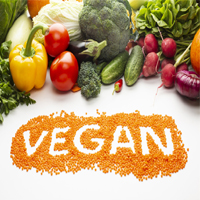The Power of Plants: Demystifying A Vegan Diet By Salina Shah
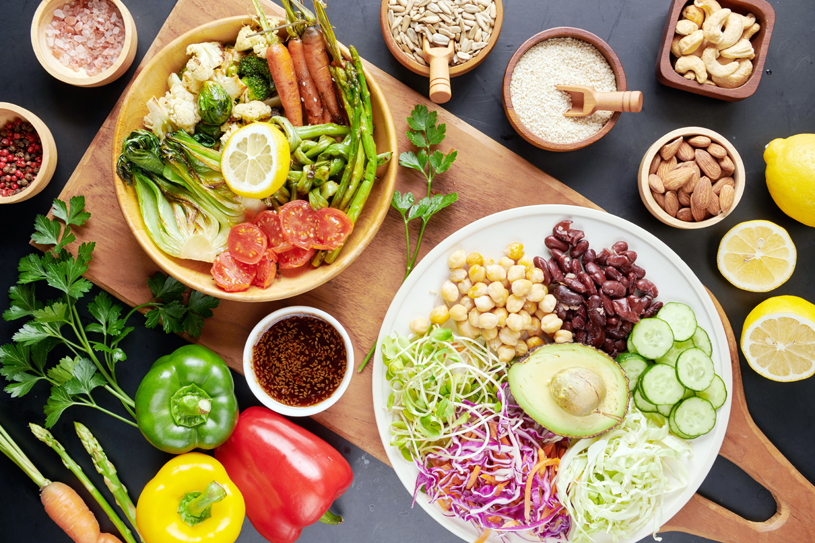
Vegan diets have become mainstream, with advocates ranging from professional athletes to health experts to global superstars to environmental activists. More recently, the release of the popular Netflix documentary, The Game Changers, addressed misconceptions about health, protein, and strength from vegan diets and generated further buzz and curiosity about this plant-based way of eating.
What is a vegan diet?
A vegan diet has many health benefits
Learn more about the food you eat today and how it is made
|
What do Oscar-winning director James Cameron, tennis superstar Venus Williams, and environmental activist Greta Thunburg have in common? If you guessed that they all follow a vegan diet, you are correct!
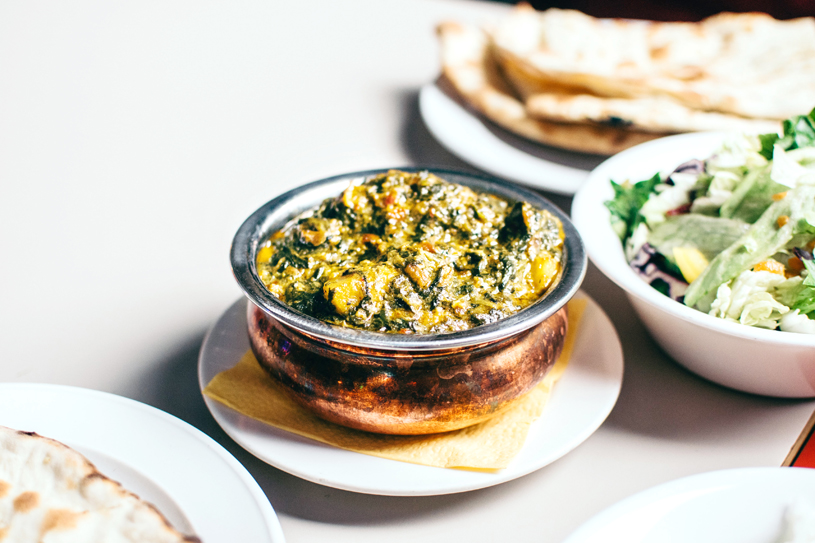
Are there any Indian celebrities who also follow a vegan diet? Yes, the list is quite long. Shahid Kapoor, Sonakshi Sinha, Sonam Kapoor, John Abraham, Shraddha Kapoor, Kangana Ranaut, and more. Vegan diets have become mainstream, with advocates ranging from professional athletes to health experts to global superstars to environmental activists. More recently, the release of the popular Netflix documentary, The Game Changers, addressed misconceptions about health, protein, and strength from vegan diets and generated further buzz and curiosity about this plant-based way of eating.
The difference between vegan and vegetarian
What is a vegan diet? Is it like a vegetarian diet?
A vegan diet excludes a broader range of foods from animals. Both vegetarian and vegan diets exclude meat, poultry and fish. In addition, a vegan diet also avoids eggs and dairy products, such as milk, yogurt, cheese and butter.
 So what’s left to eat? Foods from plants! Vegans predominantly consume grains, legumes, fruits, vegetables, nuts and seeds. Also, unlike the vegetarian dietary pattern, veganism is a complete lifestyle that excludes animals and animal-based foods from both diet and lifestyle. For example, a vegan lifestyle minimizes the use of products made from animal skin (such as fur, leather, and wool), products containing animal ingredients or tested on animals (such as cosmetics), and other forms of animal exploitation (such as zoos, circuses, and animal testing). A vegan lifestyle and diet is often motivated by concern for animal welfare, environmental impact, and personal health.
So what’s left to eat? Foods from plants! Vegans predominantly consume grains, legumes, fruits, vegetables, nuts and seeds. Also, unlike the vegetarian dietary pattern, veganism is a complete lifestyle that excludes animals and animal-based foods from both diet and lifestyle. For example, a vegan lifestyle minimizes the use of products made from animal skin (such as fur, leather, and wool), products containing animal ingredients or tested on animals (such as cosmetics), and other forms of animal exploitation (such as zoos, circuses, and animal testing). A vegan lifestyle and diet is often motivated by concern for animal welfare, environmental impact, and personal health.
Vegan diet for better health
How can adopting a vegan diet help with better individual health?
Compared to animal-based foods, plant-based foods tend to have more fiber, phytonutrients and antioxidants, while having less saturated fat and cholesterol. Since these differences are beneficial for health, consuming only plant-based foods can offer health benefits, and a well-planned and healthy vegan diet can confer even more health benefits.
A healthy vegan diet consists of minimally processed plant-based foods. This means whole plant-based foods that minimize the use of refined ingredients, such as oils, white sugar, and white flour. These healthy vegan foods have lower caloric density, so they contain less calories per pound. The magic is that they can fill you up with fewer calories! As a result, a healthy vegan diet can lead to loss of excess weight and lower BMI.

Also, due to low amounts of dietary cholesterol, a healthy vegan diet can help to lower cholesterol levels and reduce the risk of heart disease. A healthy vegan diet can also lower blood pressure, reduce risk of type 2 diabetes, and is associated with a lower risk of certain types of cancer, such as breast and prostate cancer. Additionally, a vegan diet is helpful for those experiencing lactose intolerance. About 70% of the world’s adult population is lactose intolerant. The prevalence of lactose intolerance among non-European populations, such as among South Asians, is very high. Since lactose is a type of sugar found in milk and other dairy products, adopting a vegan diet, which excludes dairy products, can help address common symptoms of lactose intolerance (including stomach pain, bloating, gas, and diarrhea).
What do the scientific health studies show?
According to many scientific studies, healthy vegan diets can offer appropriate nutrition while avoiding some of the health hazards linked to excessive consumption of animal foods.
Let’s take a look at a sample of some of the evidence-based research.

- Nearly 300 employees were followed for 18 weeks in the GEICO corporate worksite study. Compared to the control group, employees in the vegan group lost more body weight, decreased total and LDL cholesterol levels, and improved their blood sugar levels. (Mishra et al., 2013)
- In the EPIC-Oxford study of over 11,000 participants, those on a vegan diet had lower blood pressure, lower prevalence of hypertension, and lower BMI. (Appleby, Davey, Key, 2002)
- From the midwestern region of the US, children with obesity and high cholesterol were studied, along with their parents. The children and parent pairs, who followed a vegan diet for 4 weeks, experienced a significant reduction in weight, BMI, and cholesterol levels. (Macknin et al., 2015)
- Research conducted on more than 50,000 women over nearly 8 years found, as women consumed higher amounts of dairy milk, they had an increasing risk of breast cancer. (Fraser et al., 2020)
- The Adventist Health Study-2 reviewed prostate cancer risk in over 25,000 men. Compared to other diets (such as nonvegetarian, pesco-vegetarian, lacto-ovo vegetarian), a vegan diet was found to have a protective association with prostate cancer risk. (Tantamango-Bartley et al., 2016)
- In a 6 week study of osteoarthritis patients, patients following a healthy vegan diet reported significant improvement in their physical functional status. (Clinton, O’Brien, Law, Renier, Wendt, 2015)
- Additional study findings of average biomarker values by diet are below:
These studies and more demonstrate that vegan diets can be quite healthy, particularly in terms of lower BMI, lower heart disease risk, lower risk of type 2 diabetes, and lower prevalence of hypertension.
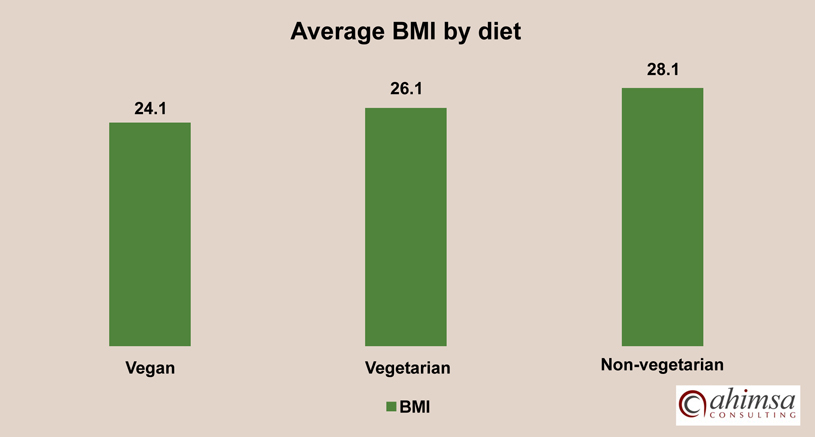
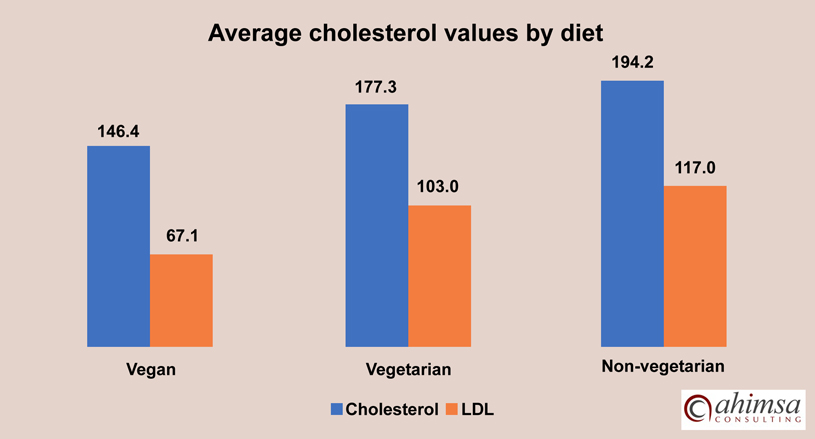
The healthcare profession has also started to recognize this growing mountain of evidence of the health benefits of plant-based foods. As of late 2020, in New York City, all hospitals must offer a healthy plant-based option for every meal. In 2021, Hayek Hospital in Lebanon became the first hospital in the world to adopt a healthful vegan menu. In late 2022, the American College of Lifestyle Medicine announced free evidence-based nutrition and lifestyle medicine education to every health care professional in New York City, so providers can counsel their patients on lifestyle changes, including healthy foods mostly from plants.
But, it’s important to note that, if a vegan diet consists primarily of processed plant-based foods and refined ingredients, optimal health results may not be achieved. So, depending on your health goals, a well-planned and vegan diet comprised of whole plant foods may be more desirable.
Factors to consider with a vegan diet
In cases where diets are not well-planned and consist primarily of processed and refined ingredients, vegans as well as non-vegans can have nutrient deficiencies. To address potential deficiencies, some foods, like dairy products and plant-based dairy alternatives, are usually fortified with vitamins. If you are considering transitioning to or have adopted a vegan diet, please inform your healthcare provider.
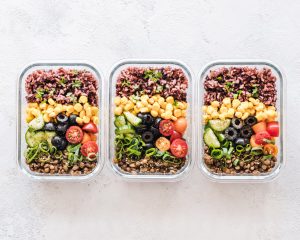 They can check your blood work, including your levels of Vitamin B12 and Vitamin D, and recommend any vitamin, mineral, and plant-based protein supplementation, if necessary. From a cost standpoint, quick processed vegan foods or plant-based substitutes can be expensive but convenient. While less processed, healthier vegan foods are relatively inexpensive, but may take more time to prepare. For example, oat milk at the grocery store may be expensive, but making homemade oat milk (using just rolled oats and water) is inexpensive. Planning ahead and doing meal prep in bulk can help keep down the costs of vegan meals while being more time-efficient. For example, when feeding the family, instead of buying cans of prepared and seasoned refried black beans, you can make a large batch from an inexpensive bag of dried black beans and even have extra leftover for a later meal.
They can check your blood work, including your levels of Vitamin B12 and Vitamin D, and recommend any vitamin, mineral, and plant-based protein supplementation, if necessary. From a cost standpoint, quick processed vegan foods or plant-based substitutes can be expensive but convenient. While less processed, healthier vegan foods are relatively inexpensive, but may take more time to prepare. For example, oat milk at the grocery store may be expensive, but making homemade oat milk (using just rolled oats and water) is inexpensive. Planning ahead and doing meal prep in bulk can help keep down the costs of vegan meals while being more time-efficient. For example, when feeding the family, instead of buying cans of prepared and seasoned refried black beans, you can make a large batch from an inexpensive bag of dried black beans and even have extra leftover for a later meal.
Another area to be mindful of is doing some homework prior to eating out at social functions or traveling. Meals are at the center of most social gatherings, such as family dinners or office parties, so planning ahead is key. You can inform others of your vegan diet in advance, offer to bring a vegan dish to share, or be prepared with substitution ideas when attending events. When traveling, you can use vegan apps to identify local vegan-friendly places to eat or maybe bring some back-up options with you (such as nuts, dried fruits, or even a simple peanut jelly sandwich). Overall, while a vegan diet has many health benefits, there are some considerations that need to be planned around in a practical manner in order for it to be sustainable. It’s important to take into account your lifestyle, dietary needs, and health goals when deciding if this diet is right for you. Additionally, you may wish to consider the broader global benefits on the environment, food system, and world’s population from eating more plant foods.
Broader global benefits of a vegan diet
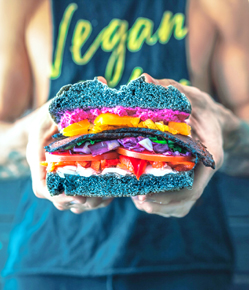 The global benefits of a predominantly plant-based diet stem from a reduction in the demand for animal-based food production and, as a result, a decreased need for animal agriculture.
The global benefits of a predominantly plant-based diet stem from a reduction in the demand for animal-based food production and, as a result, a decreased need for animal agriculture.
The animal agriculture industry uses an excessive amount of land and water to grow, feed, and raise animals. Further, animal agriculture is the leading cause of deforestation, water consumption, pollution, species extinction, and climate change.
Consider these statistics about the global animal agriculture industry:
- Animal agriculture is responsible for 91% of the Amazon destruction.
- 1,000 gallons of water are required to produce 1 gallon of milk.
- Livestock cover 45% of the Earth’s total land.
- 90 million tons of fish are pulled from the oceans each year.
- The waste (or excrement) from 1 dairy cow is equal to that of over 150 people.
| Climate Change
Global Greenhouse Gas Emission 51% Due to Live Stock and their Byproducts 13% Due to Transport (Road, Rail, Air & Marine A Plant Based Diet Cuts Your Carbon Footprint By 50% Livestock is 65% Nitrous Oxide Responsible for Emissions A GHG 296x More Destructive Than CO2 Deforestation 1-2 Acres Rainforest are Cleared Every Second Animal Agriculture is Responsible for 91 % of Amazon Destruction Acres of Rainforest Cleared Palm Oil : 26 Million Animal Agriculture : 136 Million Water Use 1 Hamburger = 660 Gallons Water = Equivalent to Showering for 2 Months The Meat & Dairy Industry Use: 1/3 of Earths Fresh Water USA Water Use: 5% Domestic 55% Animal Agriculture Species Extinction 110 Animal and Insect Species are Lost Every Day from Rainforest Destruction Animal Agriculture is The Leading Cause of Species Extinction Ocean Dead Zones Water Pollution and Habitat Destruction Waste Waste from A Farm of 2500 Dairy Cows = Waste from a City of 411000 People Every Minute 7 Million Pounds of Excrement are Produced by Animals Raised for Food in the US Fisheries 90 Million Tons of Fish are pulled from the Oceans Each Year 3/4 of the World’s Fisheries are Exploited For Every 1 Pound of Fish Caught 5 Pounds of Unintended Marine Species are Caught and Discarded as By-Kill Land Use 1/3 Lands Desertified due to Livestock Livestock Covers 45% of the Earth’s Total Land 1.5 Acres Land = 37000 LBS Plant Based Food or 375 LBS Meat Land Needed to Feed 1 Person for 1 Year Vegan = 1/6 Acres Meat Eater = 18x Vegan |
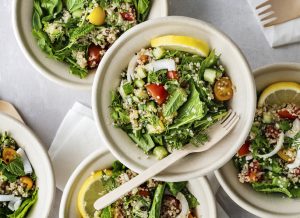
The inefficient use and depletion of natural resources by the animal agriculture industry creates an unsustainable and environmentally damaging agricultural practice. Far more than our current global population of 8 billion people, we grow enough food to feed 10 billion people. But much of this food is used to feed livestock, where only a fraction of the calories and protein consumed by livestock are converted into food for people. Due to this wastage of resources along with economic instability, climate change, and geopolitical conflicts, many countries face food shortages and about 800 million people globally go hungry.
Whereas, a vegan diet consisting entirely of plant-based foods is more sustainable and can have a significantly lower carbon footprint by using less overall land, water, and other resources. Adopting a vegan diet would lessen the need for as much livestock and free up more natural resources and food grown to be available directly as food to feed more people instead of animals. An increase in the supply of plant-based food (which is usually less expensive than animal foods) would also be available to directly tackle world hunger, help address climate change and its role in hunger and malnutrition, and create a more efficient food production system to feed the world’s growing global population.
Of course, climate change, food systems, and feeding the world’s population are complex issues that depend on a myriad of factors, and solutions may differ in different parts of the world. But, from an individual standpoint, making the choice to eat more healthy plant foods is one of the most impactful environmental actions that one can make.
Resources to get started
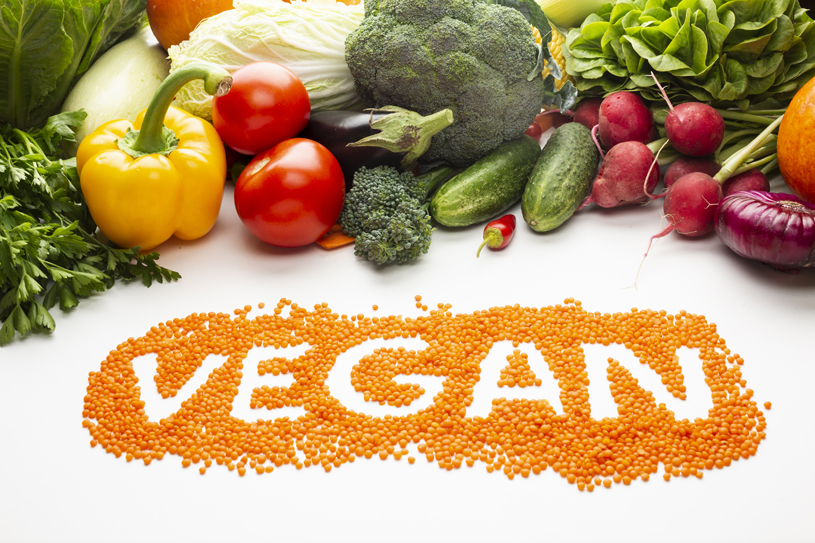 Along with the environment, animal welfare, personal well being benefits, the development and availability of many new plant-based substitutes for animal-based foods have also fueled the interest in incorporating more vegan and plant-based foods.
Along with the environment, animal welfare, personal well being benefits, the development and availability of many new plant-based substitutes for animal-based foods have also fueled the interest in incorporating more vegan and plant-based foods.
Interested in learning more? Maybe you want to dip your toe in the water or maybe you’re ready to dive in. Either way, explore at the pace that works for you, so you can prepare and plan for the longer run.
- Learn more about the food you eat today and how it is made.
- Watch documentaries about vegan diets or plant-based foods.
- Try different vegan dishes and find reliable ones that you like.
- Use online resources to discover helpful plant-based swaps and alternatives.
- Download vegan dining apps to find local vegan-friendly options.
- Join vegan groups to meet others who are taking this same path.
Incremental changes will allow you to gain familiarity with a vegan diet and replace meals at your own pace. 1 meal a week or 1 meal a day or every meal.
As you experience health benefits, you may find that you’re comfortable with a fully vegan diet or that 75% of your calories from plants is more manageable, sustainable and better for your health. Importantly, find what works for you as you explore the vegan diet – the diet that can support personal wellbeing, animal welfare, and planetary health.
About the Author
 Salina is a former actuary and executive in healthcare analytics by profession and a certified master vegan educator by passion. She discovered the benefits of an ethical vegan lifestyle, learned about plant-based nutrition through the eCornell certification program, and adopted a healthy vegan diet as a breast cancer survivor.
Salina is a former actuary and executive in healthcare analytics by profession and a certified master vegan educator by passion. She discovered the benefits of an ethical vegan lifestyle, learned about plant-based nutrition through the eCornell certification program, and adopted a healthy vegan diet as a breast cancer survivor.
Salina founded Ahimsa Consulting LLC to raise awareness of the vegan lifestyle, the dharmic principle of ahimsa, and promote better health outcomes through whole plant foods. She is also an associate producer of They’re Trying to Kill Us, an assistant producer of SLAY, and a board member of the Actuaries for Sustainable Health Care nonprofit. To learn more, please connect via https://www.linkedin.com/in/salinashah/.

